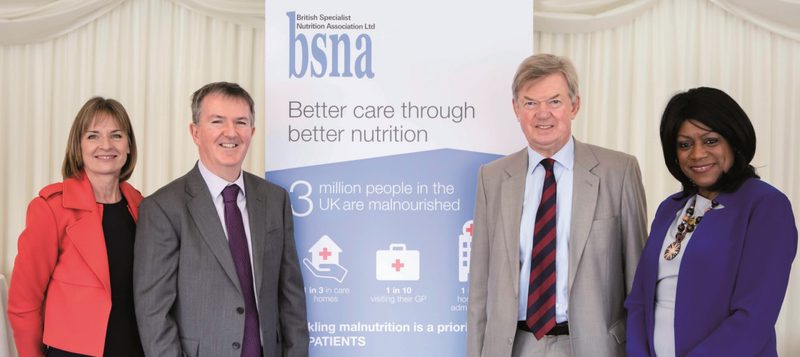
Posted on: February 25, 2019
Hard to stomach – the malnutrition emergency in the NHS
A round table discussion took place in Parliament to highlight the reality of disease-related malnutrition. The event was chaired by Declan O' Brien, with guest speakers including AnneHoldoway,a dietitian from the British Association for Parenteral and Enteral Nutrition, and Suzanne Ford,a dietitian advisor to PKU charity NSPKU. The event was well attended by Parliamentarians and key stakeholders, including the British Dietetic Association (BDA) and National Nurses Nutrition Group (NNNG).
The reality is that malnutrition affects at least 3 million people in the UK, and that the cost of malnutrition is high. Nearly £20bn is spent by health and care services to treat it each year. It costs over £5,000 more to treat someone who is malnourished than well-nourished and it affects all parts of the country regardless of relative wealth.
Many Clinical Commissioning Groups dismiss medical foods for their costs without examining why they are essential. Ford mentioned that a recent survey by NSPKU showed that 10% of respondents are having prescription problems, with half of the patients finding the GPs to be actively blocking access to these products. Two thirds of the cases involved children and over half were going on for over a year.
Holdoway cautioned that even amongst the medical professional community there are myths around nutrition and malnutrition that are still being propagated, like the belief that feeding a patient feeds their cancer, or palliative patients should not be fed if they are not hungry.
The roundtable discussion concluded with several key action points:
- NHS England and CQC need to give nutrition and hydration services greater priority, by appointing a senior accountable officer to raise the importance of this part of care for patients.
- Better identification, recording and management of malnutrition across health and care settings is needed – with more effective commissioning of nutritional support and prescribing of nutritional supplements.
- A joint strategy and campaign to tackle malnutrition needs to be developed by NHS England and Public Health England, recognising the particular issue of disease related malnutrition in all care settings.
- Health and care staff need to be able to identify a person at risk of malnutrition or who is already becoming malnourished, to know what support is needed and what medical intervention may be required to manage patients.
David Tredinnick MP, commended the work of the BSNA as “a critically important group in the health landscape.”
The full article can be accessed here.
(Photo - Left to Right: Anne Holdoway,Declan O' Brien (chair), David Treddinick MP, Eleanor Smith MP.Credit: Paul Heartfield)